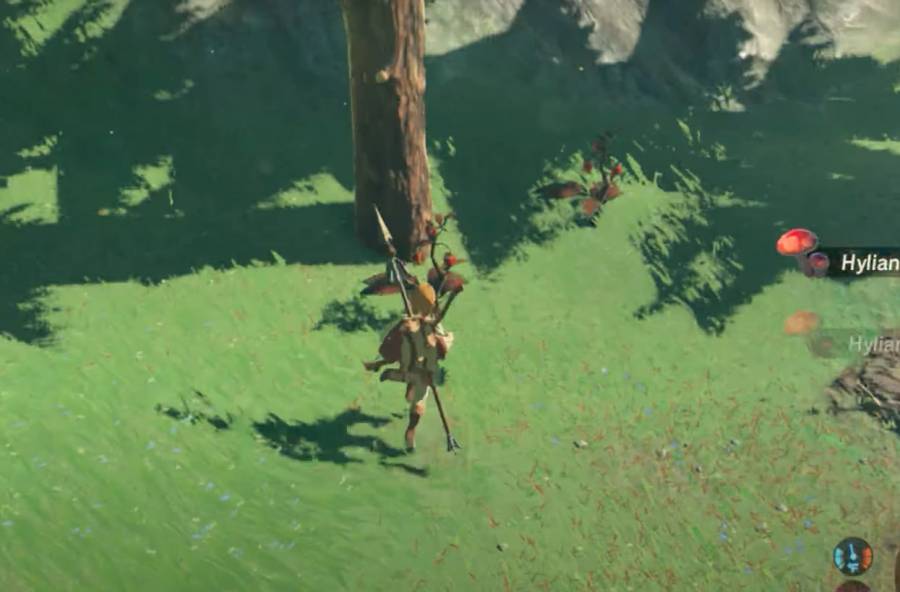Tears of the Kingdom is an immersive, story-driven role-playing game (RPG) that captivates players with its rich narrative and intriguing gameplay mechanics. The game’s depth doesn’t just lie in its compelling storyline or beautifully designed world; it also stems from the intricate system of character progression that forms the backbone of the player experience. This article aims to decode the character progression system in Tears of the Kingdom, discussing the core mechanics, skill trees and decision-making, character customization, narrative integration, player agency, game pacing, boss battles, in-game economies, multiplayer dynamics, and the impact of post-launch updates and expansions.
Understanding the Core Mechanics
The Foundations of Character Progression
Character progression in Tears of the Kingdom isn’t just about gaining levels. It’s a nuanced system that intertwines with every aspect of the game, from combat and exploration to dialogue and quest completion. As players progress through the game, they gain experience points (XP) that contribute to their character’s level. Each level-up represents an opportunity for players to enhance their character’s skills, abilities, and attributes, shaping them into a unique embodiment of their playstyle.
The Intersection of Skills and Development
The game boasts a vast array of skills that players can develop. These skills are not just static boosts to the character’s capabilities; they evolve and grow, unlocking new abilities and gameplay options as players invest more points into them. Each skill has a distinct impact on the game, affecting combat effectiveness, interaction with NPCs, or even opening up alternative paths through the game’s narrative.

Impact of Early Choices on Long-Term Progress
From the outset, players are confronted with choices that will significantly shape their character’s development path. The initial choice of character class sets the foundation for the character’s skill set and influences the strategies and tactics that will be most effective throughout the game. Early decisions about which skills to prioritize can have long-lasting effects, opening certain paths while potentially closing others.
Skill Trees and Decision Making
Exploration of Skill Trees in Tears of the Kingdom
Each character class in Tears of the Kingdom has a unique skill tree, a branching path of skill development that offers a multitude of choices for players. These skill trees are not linear; they offer multiple routes to progress, each with its own benefits and trade-offs. Players must carefully consider their options and plan their progression, balancing immediate gains with long-term goals.
Balancing Specialization and Versatility
A key decision in navigating the skill tree is the balance between specialization and versatility. Specializing in a few skills can make a character exceptionally powerful in specific areas, but it may also limit their effectiveness in other situations. Conversely, spreading points across a wide range of skills can make a character more versatile but potentially less potent in any single area.
Strategic Choices in Navigating Skill Advancements
Choosing which skills to advance is a strategic decision that should align with the player’s preferred playstyle and the challenges they anticipate facing. Some skills may be more useful in certain situations or against specific enemies, while others may provide more general benefits. Understanding the implications of these choices is crucial for optimizing character development.
Character Customization: Beyond Aesthetic Appeal
Role of Customization in Player Engagement and Narrative
Customization in Tears of the Kingdom goes beyond mere aesthetics. The ability to personalize a character’s appearance and gear allows players to create a character that truly represents them, enhancing their emotional connection to the game. Furthermore, certain customization options can influence gameplay, offering additional depth to the character progression system.
Implementing Player Choices in Character Design
Player choices in character design are not only reflected in the character’s appearance but also their abilities and gameplay. For instance, the choice of armor can affect the character’s defensive capabilities, while the choice of weapons can influence their combat style. These decisions add another layer to the character progression, as players must consider not only their character’s skill development but also their equipment and appearance.
Narrative Integration of Skill Development
Merging Gameplay Progression with Storyline
One of the most compelling aspects of Tears of the Kingdom is the seamless integration of character progression with the game’s narrative. As players develop their character’s skills, they also progress through the story, overcoming challenges, making important decisions, and unraveling the game’s mysteries. This fusion of gameplay and story adds depth and meaning to the character progression, making each level-up feel significant and rewarding.
Impactful Moments in the Character’s Journey
Throughout the game, certain moments stand out as particularly impactful for character progression. These could be key plot points where the character gains new abilities, challenging battles that test the limits of their skills, or dramatic events that lead to significant character growth. These moments are not only exciting but also serve as milestones in the character’s progression journey.
Aligning Character Growth with Plot Arcs
The character’s growth is closely aligned with the game’s plot arcs. As the story unfolds, the character grows stronger and more capable, reflecting their experiences and achievements. This alignment ensures that the character progression feels like a natural part of the story, rather than a separate mechanic.

Player Agency: Shaping the Protagonist’s Destiny
Dynamic Decision-Making in Tears of the Kingdom
Tears of the Kingdom offers players a high degree of agency in shaping their character’s destiny. The choices players make, both in terms of skill progression and narrative decisions, can significantly influence the course of the game. This dynamic decision-making system enables a high level of replayability, as different decisions can lead to different outcomes.
Consequences of Player Choices
Every decision in Tears of the Kingdom has consequences. Choosing to develop certain skills can affect the character’s relationships with NPCs, alter the outcome of quests, or even change the state of the game world. These consequences add weight to every decision, making the character progression feel meaningful and impactful.
Crafting a Personalized Gaming Experience
Through its intricate character progression system, Tears of the Kingdom allows players to craft a personalized gaming experience. Players have the freedom to shape their character to fit their preferred playstyle, explore different narrative paths based on their decisions, and carve out their unique journey through the game.
Grinding vs. Narrative Pacing
Balance between Grinding and Narrative Pacing
Balancing grinding – the repetitive action of earning XP or resources – with narrative pacing is crucial to maintaining player engagement. Too much grinding can slow down the narrative pace and make the gameplay feel tedious, while too little can make the character progression feel shallow. Tears of the Kingdom strikes a careful balance, ensuring that grinding feels rewarding and contributes to character progression, without overshadowing the narrative.
Role of Side Quests in Character Development
Side quests play a vital role in character development. They offer additional opportunities to earn XP and resources, aid in skill development, and provide deeper insights into the game’s lore and characters. While they are optional, engaging with side quests can greatly enhance the character progression experience.
Minimizing Repetition, Maximizing Engagement
Tears of the Kingdom employs various mechanisms to minimize repetition and maximize engagement. These include diverse quest designs, dynamic enemy encounters, and meaningful character interactions. By keeping the gameplay varied and engaging, the game ensures that character progression remains exciting throughout the journey.
Boss Battles and Skill Mastery
Challenges of Boss Fights
Boss battles in Tears of the Kingdom present unique challenges that test the limits of the character’s skills. These battles require strategic planning, quick reflexes, and a deep understanding of the character’s abilities. Overcoming these challenges represents a significant milestone in character progression, demonstrating the player’s mastery of their skills.
Skill Mastery as a Prerequisite
Skill mastery is a prerequisite for success in boss battles. It’s not enough to simply have powerful skills; players must also know how to use them effectively. This encourages players to fully engage with the skill development system, exploring different combinations of skills and strategies to overcome the game’s toughest challenges.
Balancing Difficulty for Player Progression
Balancing difficulty in boss battles is crucial for maintaining player engagement. If a battle is too easy, it can feel anticlimactic; if it’s too hard, it can lead to frustration. Tears of the Kingdom strikes a balance, ensuring that boss battles are challenging but fair, providing a satisfying test of the player’s skill mastery.

In-Game Economies and Skill Acquisition
Currency Systems and Their Role
Currency systems play a vital role in character progression. The in-game currency, earned through quests, battles, and exploration, allows players to purchase new equipment, enhance their gear, and acquire new skills. Managing this currency effectively is crucial for optimizing character development.
Economic Balance in Skill Development
Maintaining economic balance in skill development is crucial. If skills or upgrades are too expensive, they can feel out of reach; if they’re too cheap, they can undermine the sense of achievement from acquiring them. Tears of the Kingdom maintains a careful balance, ensuring that acquiring new skills and upgrades feels rewarding and meaningful.
Avoiding Pay-to-Win Pitfalls
While Tears of the Kingdom does offer optional in-game purchases, it avoids the common pitfall of pay-to-win mechanics. Any purchasable items or advantages are carefully balanced to ensure they don’t disrupt the game balance or undermine the progression system. This ensures that all players, regardless of how much they spend, can enjoy a fair and satisfying gaming experience.
Multiplayer Dynamics: Co-op Skill Synergies
Cooperative Play and Skill Combinations
In multiplayer mode, Tears of the Kingdom introduces another layer of complexity to character progression. Players can combine their skills in creative ways to overcome challenges, creating synergies that enhance their effectiveness. This encourages teamwork and strategic planning, adding a social aspect to the progression system.
Sure, let’s continue from where we left off.
Strategies for Multiplayer Skill Development
In multiplayer mode, character progression strategies can differ significantly from single-player mode. Players must consider not only their own skills but also those of their teammates. Building a balanced team, with complementary skills and abilities, is crucial for tackling the game’s toughest challenges.
Enhancing Social Dynamics Through Skills
The skill system in Tears of the Kingdom enhances the social dynamics of multiplayer gameplay. Collaborating on skill development strategies, coordinating skill usage in battles, and learning from other players’ builds can enrich the multiplayer experience and foster a sense of community among players.
Post-Launch Updates and Expansions: Keeping the Game Fresh
Lifespan of a Game: The Role of Updates and Expansions
Post-launch updates and expansions play a critical role in extending the lifespan of a game. By introducing new content, features, and challenges, they keep the game fresh and engaging for players. In terms of character progression, updates and expansions often bring new skills, equipment, and progression paths, offering players new ways to develop their characters.
Introducing New Skills and Abilities
Each update or expansion in Tears of the Kingdom introduces a variety of new skills and abilities for players to explore. These additions offer fresh gameplay possibilities, encouraging players to experiment with different builds and strategies. They also ensure that character progression remains an ongoing journey, even for players who have reached the base game’s level cap.
Maintaining Balance in Expanding Skill Sets
As new skills and abilities are introduced, maintaining balance becomes increasingly important. Each new addition must be carefully balanced against existing options to ensure that no single skill or strategy becomes overwhelmingly powerful. This requires continuous fine-tuning and adjustment, demonstrating the developers’ commitment to providing a fair and enjoyable gaming experience.
Conclusion
Character progression in Tears of the Kingdom is a rich and complex system that offers endless possibilities for customization and strategic decision-making. It intertwines with every aspect of the game, from combat and exploration to narrative and dialogue, making each decision feel meaningful and impactful. Through its intricate skill trees, dynamic decision-making system, engaging narrative integration, balanced gameplay pacing, challenging boss battles, fair in-game economies, cooperative multiplayer dynamics, and regular updates and expansions, Tears of the Kingdom provides a deeply satisfying character progression experience that keeps players engaged and invested in their journey through the game. Whether you’re a seasoned RPG veteran or a newcomer to the genre, Tears of the Kingdom offers a character progression system that’s sure to captivate and challenge you.
